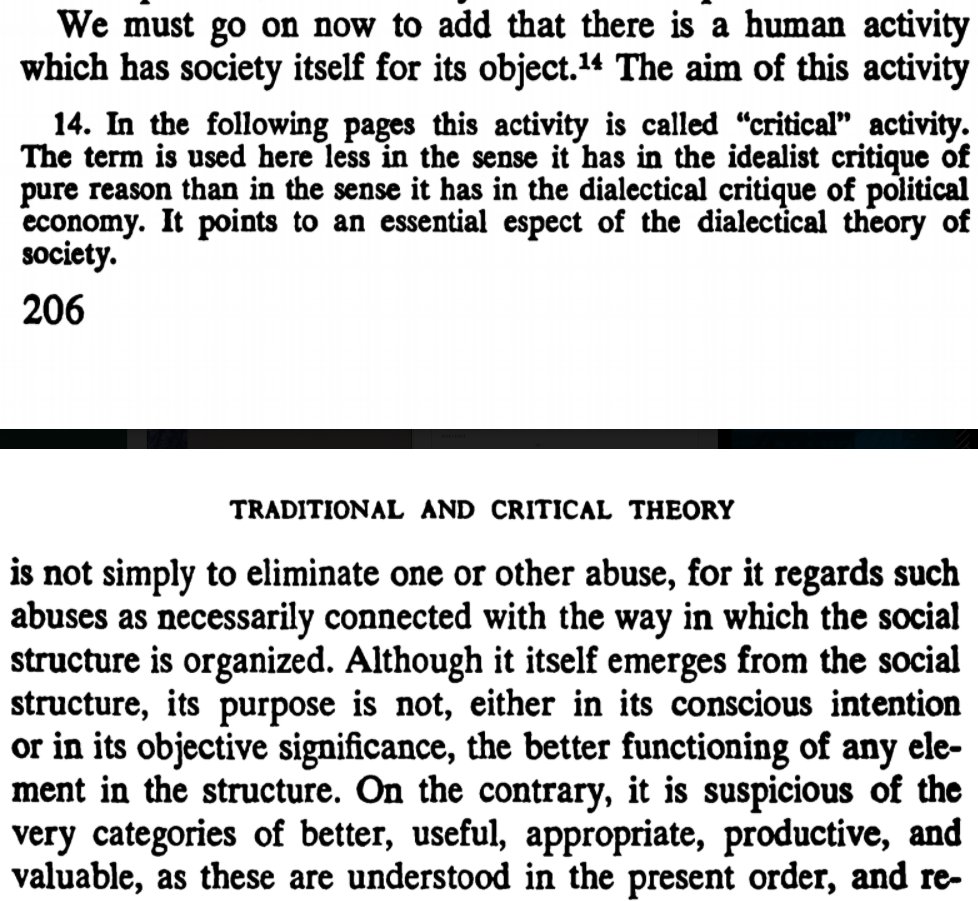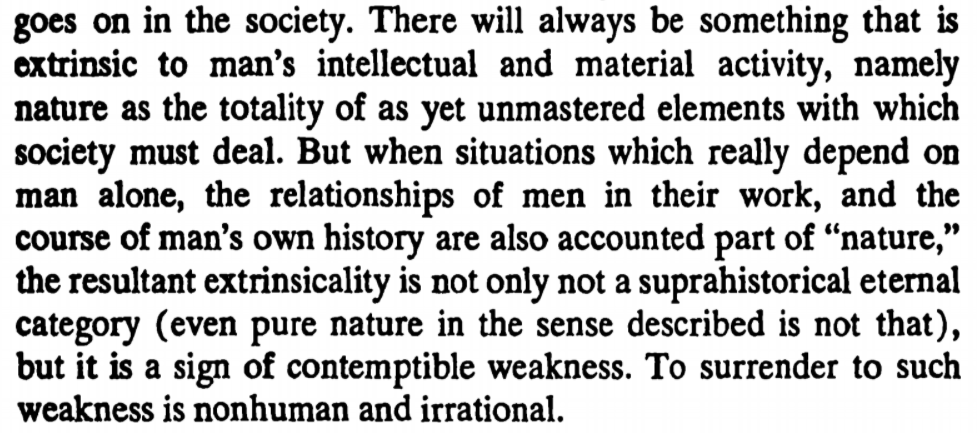There's a lot going on there. In the first image, immediately in the footnote, you can see that Horkheimer claims that the Critical Theory, the entire critical attitude, relies upon that of (young) Hegel (as interpreted by (early) Marx, of course).
It precedes "intersectionality" directly by indicating that all abuses in society are necessarily connected to one another as a result of the social structure itself and therefore does not seek to end any one but all of them (by tearing down the social structure, obviously).
Thus, we see a bright, straight line drawn between Hegel through Marx through Horkheimer to Crenshaw and thus the intersectionality that we're all dealing with today. I've been criticized for making this claim in the past, but here it is, plain as day, in the original.
The goal is explicitly stated not to be to repair or improve any part of the existing social order but to be distrustful and ruthlessly critical of the whole thing. As Horkheimer was a Marxist following Marx, it's clear what he intended to replace it with.
If it's not abundantly clear in this given passage that Horkheimer is saying that the point of Critical Theory is to throw off the entirety of society as it is for a Marxist alternative, the preceding context is all about how the liberal order and science are "bourgeois."
Just before this ominous passage, Horkheimer lays out explicitly that the liberal (capitalist) order is grossly inefficient (as compared to communism, one assumes) and is in that regard in need of being replaced with something that doesn't create so many abuses.
The space between those two pieces is a couple-page screed about how basic research produces nothing of real value and shouldn't really be considered work. While I sympathize that low-worth academic work is a problem, this is a horrifically pessimistic and incorrect attitude.
And, yeah, Hegel is relevant, even beyond the footnote above. This appears a couple of pages earlier (and Hegel is mentioned in a similar light repeatedly throughout this crucial essay). Hegel's "absolute spirit" is the deity of this awful religion.

 Read on Twitter
Read on Twitter






